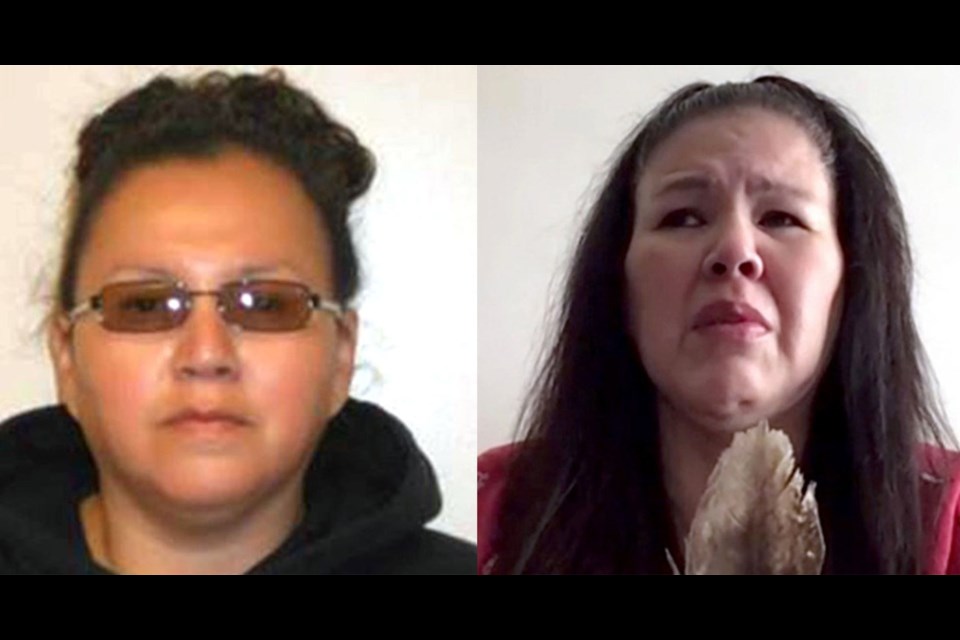TORONTO – A lawyer for two Keeseekoose First Nation sisters has asked the Saskatchewan government to reduce their three-decades old second-degree murder convictions to manslaughter.
Odelia and Nerissa Quewezance have spent 29 years in prison for a murder they say they didn’t commit.
“I have asked Saskatchewan Justice to agree to quashing Odelia and Nerissa’s convictions from second degree murder and substituting manslaughter convictions in their stead so they can both be released forthwith from prison without any state restraints,” said Innocence Canada lawyer James Lockyer from Toronto.
Odelia and Nerissa Quewezance were sentenced to life in prison on second-degree murder charges in 1994 for the death of 70-year-old Anthony Joseph Dolff of Kamsack in 1993.
A spokesperson from Saskatchewan Ministry of Justice and Attorney General wouldn’t confirm if they have received Lockyer’s proposal.
“Public Prosecutions does not comment publicly on whether it has received correspondence or what actions it is considering in response to requests made through correspondence,” said Noel Busse Tuesday.
Giving up fight for innocence doesn’t prove guilt: Milgaard
David Milgaard - who was the victim of one of Canada's most notorious miscarriages of justice and now advocates for the wrongfully convicted - believes in the sisters’ innocence.
“It’s quite simple, I truly believe in the innocence of both those girls and just the fact that someone is making some sort of bargaining situation to have them free doesn’t change the fact that the girls are completely innocent.”
Milgaard said he understands the rationale to just get the sisters out of prison.
“Maybe the purpose there is to see them free and to heal,” said Milgaard. “That’s important but let’s not lose sight of the truth. The truth is very simple. These girls are truly innocent of having committed any murder. They should never be seen as offenders and should be seen as they are, as victims in this situation.
“Sometimes you know, to serve the sisters in the best way possible, is to see that they heal, and to have them get out right now,” added Milgaard.
Likewise, Kim Beaudin, national vice-chief for Congress of Aboriginal Peoples (CAP), said he understands the push to have their charges reduced to manslaughter.
Exonerating the sisters could take years, he said.
“(They) are getting up to middle age. When you add on the stress from residential school, I understand why they did it. If they were in their early twenties that would be different, but they are pushing 29 years incarcerated. It’s unbelievable, the stress, you want out and you want to go home.”
Advocates believe in sisters’ innocence
Milgaard and many others continue to believe in the sisters’ innocence.
“I truly believe in the innocence of both those girls,” said Milgaard.
Likewise, Beaudin agrees.
“They are definitely innocent. In my heart they are innocent. I saw the (court) documents. There is just no way they are guilty.”
Senator Kim Pate has also been advocating on the sisters behalf saying the sisters should not have been charged with second-degree murder.
In addition, retired judges Justice Harry LaForme and Justice Juanita Westmoreland-Traore - who headed the creation of a commission to review wrongful convictions - say the conviction of Odelia and Nerissa Quewezance has signs of a miscarriage of justice.
Not a fair trial: Beaudin
Beaudin says the sisters weren’t treated impartially by the police and didn’t get a fair trial.
He said the police should be held in contempt of court, or charged with obstruction of justice, for holding the sisters after a lawyer told police the sisters wouldn't be giving a statement and a remand order was issued for the women to be transferred to Pine Grove Correctional Centre.
The system was stacked against the sisters from the start. There had been a series of crimes by Indigenous minors in the area and, “They wanted to send a message," said Beaudin.
Other factors, in what Beaudin says was the sisters' wrongful conviction, was the jury was all white and the judge didn’t believe their 14-year-old cousin when he confessed to the murder.
“We are supposed to rely on the courts to be impartial. That’s not impartial and is why Indigenous people don’t have faith in the system.”
Pate said after the youth confessed to the murder, the court should have withdrawn the second-degree murder charges against the sisters or proceeded with an assault charge if they thought that was legitimate.
“My personal view, because of (the sisters) past history of abuse and because they were responding to sexual overtures that were made toward them, they were likely responding in self-defence or defence of each other at the time they acted."
Nerissa granted parole Thursday
Nerissa had a parole hearing Thursday in British Columbia and was granted day parole.
Diann Langley, National Elder Representative, in Ottawa for CAP sent a letter of support to the Parole Board.
"I know very well the damage our justice system is doing to Indigenous women from coast to coast," she said. "There are systemic biases and racism in our systems in Canada and maximum penalties are inequitably applied to our women."
Beaudin also sent a letter of support to the Parole Board.
"I am very deeply and acutely aware of Ms. Quewezance’s struggles, and the fact that she has been incarcerated and institutionalized since she was six years old," he said. "This traumatic journey began with her being scooped up and taken to residential school in Saskatchewan without the permission of her family.
"I know that the Province of Saskatchewan leads the nation in the incarceration of Indigenous people and the labelling of our people as Dangerous Offenders," added Beaudin.
"I believe the Parole Board of Canada can make a difference, in this case and in the situation happening across the country, and signal to our people that they have a deep understanding of the struggles, discrimination and racism Indigenous people have to address on a daily basis. This includes our federal justice system."
Odelia remains at a healing lodge in Manitoba.




